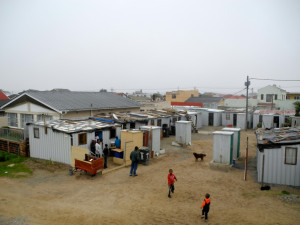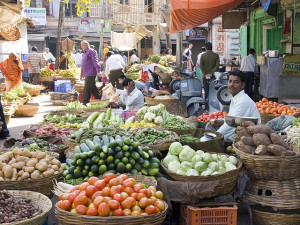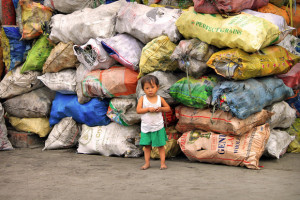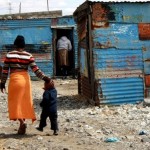Sabrina Iovino ~ Smokey Mountain: A Walk Through The Slums Of Manila, Philippines
I left the upscale neighborhood Makati by taxi and headed towards the north of Manila, towards Tondo. I was on my way to visit Smokey Mountain, one of Manila’s slums and the largest dumpsite where over 25,000 people pick up garbage for a living. The sad truth is, Smokey Mountain is one of the most impoverished areas in the world.
See: http://www.justonewayticket.com/smokey-mountain
Rashiq Fataar ~ South Africa’s Hopes Of Planning Better Cities And Communities
 Meet Sizwe Mxobo, the recent recipient of the Young Planner of the Year award. His original ideas on informality and achieving ‘social cohesion’ in his city have caused a stir in the urbanist community and are making even the most laidback Capetonians to sit up a little and listen to what he has to say.
Meet Sizwe Mxobo, the recent recipient of the Young Planner of the Year award. His original ideas on informality and achieving ‘social cohesion’ in his city have caused a stir in the urbanist community and are making even the most laidback Capetonians to sit up a little and listen to what he has to say.
Sizwe has been working with the Community Organisation Resource Centre (CORC) for the past four years, providing technical support, consulting with the City of Cape Town on service delivery challenges, and assisting informal settlements with development plans and capacity building. Future Cape Town caught up with the passionate and inspiring Sizwe to find out more about his envisioned ‘new era for planning’.
Read more: http://futurecapetown.com/future-cape-town
Archivo Boneiru ~ Geschiedenis en cultuur van Bonaire
 Journalist en auteur Boi Antoin heeft op Bonaire de afgelopen jaren een uitgebreide collectie aan Bonairiaans cultureel erfgoed opgebouwd. Het materiaal is opgeslagen in een ruimte van ongeveer zes bij vier meter. De collectie bevat foto’s uit de 20e eeuw, videobanden, audiotapes, voorwerpen, boeken en documenten. Hoewel het materiaal niet heel oud is, zijn de bewaarcondities op Bonaire verre van ideaal, waardoor de achteruitgang in de materiële staat goed te zien is.
Journalist en auteur Boi Antoin heeft op Bonaire de afgelopen jaren een uitgebreide collectie aan Bonairiaans cultureel erfgoed opgebouwd. Het materiaal is opgeslagen in een ruimte van ongeveer zes bij vier meter. De collectie bevat foto’s uit de 20e eeuw, videobanden, audiotapes, voorwerpen, boeken en documenten. Hoewel het materiaal niet heel oud is, zijn de bewaarcondities op Bonaire verre van ideaal, waardoor de achteruitgang in de materiële staat goed te zien is.
Plataforma Kultural en Fundashon Historiko Kultural Boneriano hebben het initiatief genomen om het aanwezige materiaal te laten digitaliseren en te ontsluiten. Zij werken daarbij samen met Regionaal Archief Dordrecht. Het Nationaal Archief heeft geadviseerd en het Instituut voor Beeld en Geluid neemt een deel van de collectie op haar catalogus.
Archivo Boneiru geeft u toegang tot een grote collectie foto’s, documenten en andere items over het Caribische eiland Bonaire. Het doel van Archivo Boneiru is om de geschiedenis en cultuur van Bonaire te ontsluiten.
Zie: http://www.archivoboneiru.com/
Carrie Dellesky ~ The City Dwellers Who Are Growing Food in India, China And Brazil

As urban agriculture becomes an increasingly important issue for cities like Udaipur, India, community gardens can be one tool for securing residents’ access to food. Photo by Didi/Flickr.
In the northern hemisphere, the days are growing longer and warmer, signaling the first day of spring. For many, it’s time to start sowing seeds, and for those in cities, it’s time to dig into community gardens. According to the US Department of Agriculture (USDA), around 15 percent of the world’s food is now grown in urban areas. In the developing world, urban residents have long had to grow food or tend livestock for extra food security, but in recent years urban farming has become more practical for many income groups in cities around the world.
Urban agriculture enhances sustainability, secures public space, and provides much needed food security and health benefits for communities. Whether in backyards, on rooftops, on balconies, or in vacant lots, ingenuity in urban agriculture yields abundant solutions for those who put in the effort.
Read more: http://sustainablecitiescollective.com/global-green
Bonaire.tv ~ Un plataforma digital pa duna informashon audiovisual pa ku Boneiro.
 Bonaire.tv ta un plataforma digital pa duna informashon audiovisual pa ku Boneiro.
Bonaire.tv ta un plataforma digital pa duna informashon audiovisual pa ku Boneiro.
Bonaire.tv is an information platform for Bonaire mainly focusing on Cultural and Historical information.
Zie: http://bonaire.tv
Basic Income Earth Network (BIEN)
 Founded in 1986, the Basic Income European Network (BIEN) aims to serve as a link between individuals and groups committed to, or interested in, basic income, i.e. an income unconditionally granted to all on an individual basis, without means test or work requirement, and to foster informed discussion on this topic throughout Europe.
Founded in 1986, the Basic Income European Network (BIEN) aims to serve as a link between individuals and groups committed to, or interested in, basic income, i.e. an income unconditionally granted to all on an individual basis, without means test or work requirement, and to foster informed discussion on this topic throughout Europe.
Members of BIEN include academics, students and social policy practitioners as well as people actively engaged in political, social and religious organisations. They vary in terms of disciplinary backgrounds and political affiliations no less than in terms of age and citizenship. In the course of two decades, “BIEN” has become somewhat of a misnomer, as scholars and activists from other continents have actively joined the network.
Common to all is the belief that some sort of economic right based upon citizenship – rather than upon one’s relationship to the production process or one’s family status – is called for as part of the just solution to social problems in advanced societies. Basic Income, conceived as a universal and unconditional, if modest, continuous stream of income granted throughout life to all members of a political community is just the simplest and most striking element in an expanding set of social policy proposals inspired by this belief and currently debated, if not already implemented.
To actively foster this debate, BIEN publishes a newsletter which provides an up-to-date and comprehensive international overview on relevant events and publications. It organises bi-annual BIEN-congresses where people from more than twenty countries have met to report and discuss basic income and related proposals in connection with a broad spectrum of themes, such as unemployment, European integration, poverty, development, changing patterns of work career and family life, and principles of social justice.
BIEN expanded its scope from European to the Earth in 2004. It is an international network that serves as a link between individuals and groups committed to or interested in basic income, and fosters informed discussion of the topic throughout the world.
Go to: http://www.basicincome.org/



